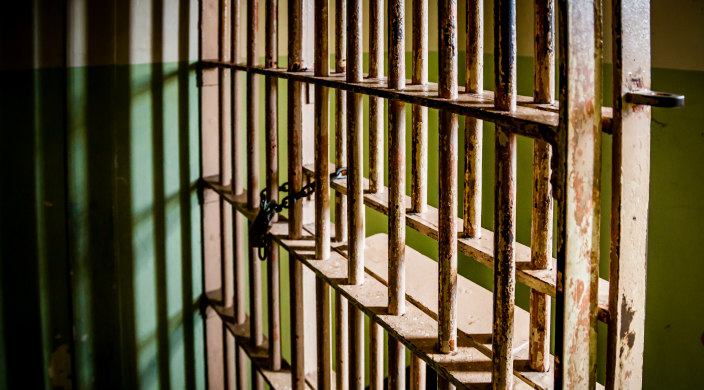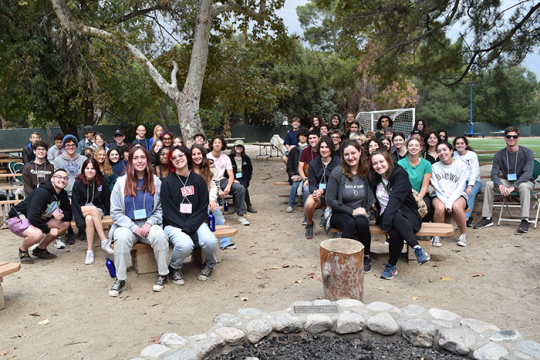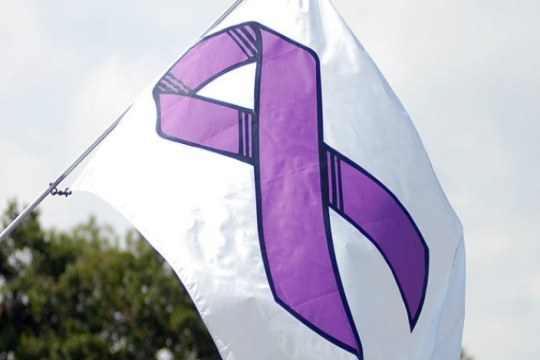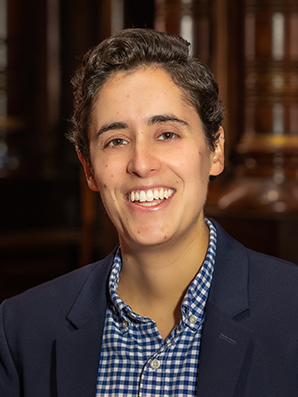
This year’s Passover was different for all of us, but I doubt most of us can imagine Passover spent in prison during the COVID-19 pandemic. Alone in cells, no Zoom , no , no social distance, and, in prisons where the rate of infection is staggeringly high, no hope to remain safe from the rampant spread of the coronavirus.
More than two million people are currently living behind bars in America. From Rikers Island in NYC to Cook County Jail in Chicago, jails and prisons across the United States have some of the highest infection rates of COVID-19 in the world.
We are proud that one of the newest congregations in our Union for Reform Judaism community is located in the Northern State Prison (NSP) in Newark, N.J., known as NSP Chief Cornerstone House of Freedom. It is a congregation that both of us have been privileged to know, and that Rabbi Haber has been helping lead. Behind barbed wire fences and thick concrete doors, 15 men clad in beige trickle into the chapel, and we greet one another with handshakes and smiles. “Shabbat Shalom!” “I am in need of Shabbat this week!”
In the face of institutions that elevate punishment and profit over human dignity and atonement, these men and women have built college programs, earned Bachelor’s degrees, founded religious communities, and raised up generations of transformational community leaders.
Before the onslaught of coronavirus, this new congregation – one of several Reform Jewish congregations located in correctional facilities – was a veritable lifeline of connection and meaning for its members. But in the weeks before and during Passover, our members were cut off from each other and the fortifying power of Jewish rituals and community.
Some of these men have spent their entire adult lives behind bars. Some were born into Jewish families, while others gravitated toward Jewish practice and identity later in life. Together, they have built a community grounded in liberation and freedom. They have imagined and realized for themselves a space that offers a counter-message to the one they receive with every frisk and cavity search: Here, each person possesses infinite sacred worth and dignity; each person is part of a whole.
The Book of Proverbs instructs us to “speak up for those who cannot speak...to raise our voices on behalf of the vulnerable and downtrodden.” (Proverbs 31:8-9). The individuals who make up America’s prison population are isolated, vulnerable, and voiceless.
And so, we raise our voices on behalf of our Reform Jewish congregants in prisons and for those of every faith and of no faith who are currently in correctional facilities and at great risk. Individuals who test positive for COVID-19 should receive the care they need and deserve, without delay and without cost.
That includes moving incarcerated people to healthcare facilities intended and able to provide necessary care and treatment. Staff must be provided with necessary PPE. And while state leaders have an essential role to play ensuring the health of inmates and staff, Congress must also ensure adequate funding to meet these moral and human obligations.
We are proud that in New York, Central Synagogue has taken the lead in offering Shabbat services on Rikers Island and lobbying to reinstate state funding for college programming in New York prisons. At the start of this pandemic, Central Synagogue co-wrote and circulated an interfaith sign-on letter to Gov. Andrew Cuomo addressing conditions in New York’s jails and prisons.
In California, our activists called on Gov. Gavin Newsom to protect prison inmates, staff, and the public, including by reducing the state prison population and providing for the safe reentry of those who are released. Other URJ congregations are doing similar work in their own states and in so doing, they have heard the voices and seen the brilliant power of those incarcerated – those who have been left vulnerable and voiceless in the midst of a global crisis.
We must all cry out and raise our voices now for the voiceless: the detained, the imprisoned, the families who cannot shelter in place together.
The men of NSP Chief Cornerstone House of Freedom are us, and we are them. When they applied to become an official member of the Union for Reform Judaism, the wrote: “No matter how far, how diverse, how dispersed, every Jew remains part of one indivisible whole.” We and they and every sacred human soul are part of one indivisible whole – one human family in which dignity is not a privilege but a divinely ordained right.
Related Posts

Building a Meaningful Jewish World: A Lesson in Expanding Temple Youth Group Programs

Supporting Survivors of Domestic Violence in the Jewish Community


